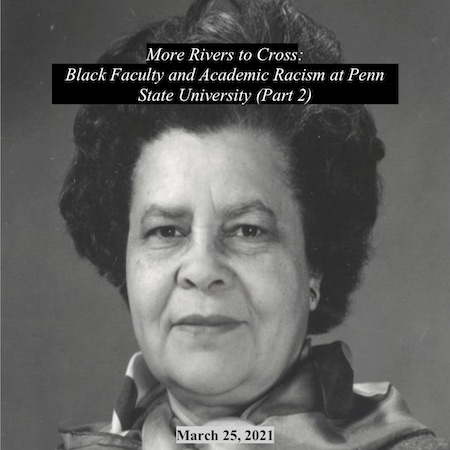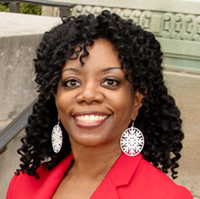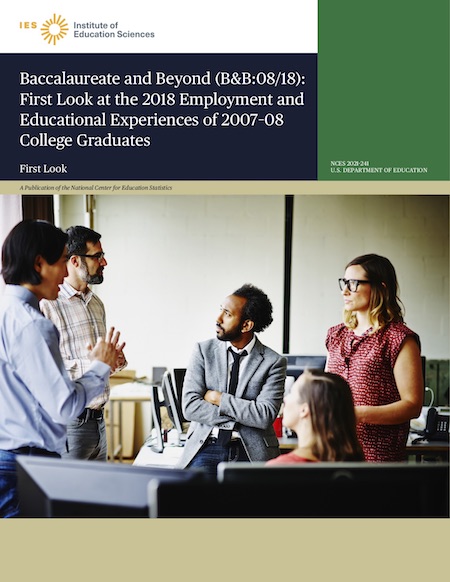African Americans Are Making Progress in Degree Attainments But the Racial Equity Gap Remains
A new study from the Center for American Progress finds that for the first time in American history, half of the young adults in the United States have earned a college degree. However, there hasn’t been a great deal of progress in closing the large and persistent racial equity gap.
Excess Deaths Due to the Pandemic Have Been the Highest in the African American...
More than a quarter of the excess deaths during the pandemic were not from the virus itself but the result of not seeking or finding adequate care in an emergency such as a heart attack, experiencing fatal complications from a chronic disease such as diabetes, or facing a behavioral health crisis that led to suicide or drug overdose.
Black Students in STEM and Health Graduate Programs Increase But a Large Racial Gap...
New data from the National Science Foundation show that in pre-pandemic America enrollments in graduate programs in science, engineering, and health fields at U.S. academic institutions were increasing. The increase in Black enrollments in these disciplines increased faster than the rate for enrollments as a whole.
New Report Exposes Widespread Academic Racism at Pennsylvania State University
The new report presents the results of a survey of Black professors at the main and satellite campuses of Penn State regarding their experiences with racism, on the institutional and interpersonal levels, perpetrated by students, colleagues, administrators as well as the academic culture in which they work.
UCLA Analysis Finds Another Racial Health Disparity During the COVID-19 Pandemic
The study found that during the pandemic, African Americans may have had worse access than Whites to outpatient care and thus were less likely to avoid hospitalizations for non-COVID-19–related conditions. This increased African Americans' risk of hospital-acquired infections, the researchers say.
Black Women Who “Hunker Down” in High Violence Areas Have Altered Genes in Immune...
The chronic stress of living in neighborhoods with high rates of violence and poverty alters gene activity in immune cells, according to a new study of low-income single Black mothers on the South Side of Chicago conducted by researchers at the University of Illinois Urbana-Champaign, the University of Kentucky and the University of California, Los Angeles.
Scholars Assemble a Massive New Database on Enslaved People
Scholars affiliated with the Hutchins Center for African & African American Research at Harvard University, the College of Arts and Humanities at the University of Maryland, the MATRIX Center for Digital Humanities & Social Sciences at Michigan State University, and other institutions have established a new open-source database called Enslaved: Peoples of the Historical Slave Trade.
Universities Use Software That Assigns Race as a High Impact Predictor of Student Success...
The study, from the nonprofit newsroom The Markup, found that more than 500 universities across the country use risk algorithms to evaluate their students. The analysis found "large disparities in how the software treats students of different races, and the disparity is particularly stark for Black students, who were deemed high risk at as much as quadruple the rate of their White peers."
Who is Doing a Better Job at Social Distancing, Blacks or Whites?
The Center for Economic and Social Research at the University of Southern California has released a new report on how Americans are dealing with the COVID-19 pandemic. The report breaks down several survey responses by racial and ethnic group. Results show that Black Americans take social distancing far more seriously than White Americans.
Yale University Study Looks to End Racial Bias in Emergency Room Treatment
A new study led by Isaac Agboola, a third-year emergency room resident at Yale New Haven Medical Center, examines how bias influences emergency department treatment, particularly decisions over which patients must be restrained and/or sedated.
Study Examines Racial Differences in Students’ Experiences in Campus Housing
After interviewing campus housing administrators, staff, and students at three major universities, Zak Foste of the University of Kansas found that students of color who lived in predominantly White facilities commonly reported not feeling welcome, being uncomfortable with roommates, and avoiding spending time in their residence.
Charter Schools’ Impact on Racial Segregation in K-12 Education
According to the study, led by a sociologist at Cornell University, the average district to expand charter school enrollment between 2000 and 2010 experienced a 12 percent increase in White-Black school segregation and a 2 percent decrease in White-Black residential segregation.
COVID Almost Eliminated the Black-White Unemployment Rate Gap, But Now It’s Back
For many decades the Black unemployment rate has traditionally been double the rate for Whites. This racial gap existed in both good economic times and bad with only slight fluctuations in the ratio. After the pandemic hit, the Black rate was only 1.2 times the rate for Whites. Since then the racial gap has reappeared.
Whites Still Hold a Disproportionate Number of Head Coaching Positions in College Sports
Among the most startling statistics in the new report from The Institute for Diversity and Ethics in Sport at the University of Central Florida is that while Blacks are more than 53 percent of the athletes in Division I basketball, African Americans are 22.7 percent of the head coaches, down from 25.2 percent 15 years ago.
Black Students’ Mental Health Impacted More by Online Racism Than In-Person Encounters
Researchers at Boston College and the University of Connecticut have authored a new study that finds that college students of color who encounter online racism can experience real and significant mental health impacts – even more significant than in-person encounters of racial discrimination.
Census Study Shows a Small Increase in the Racial Gap in Bachelor’s Degree Attainments...
For the years 2015 to 2019, on average 21.6 percent of African Americans over the age of 25 held a bachelor's degree. For non-Hispanic Whites, the figure was 35.8 percent. This racial gap is slightly large than was the case in the period from 2005 to 2009.
Racial Segregation in Major Cities Is Not Just About Housing
A new study of more than 133 million tweets on Twitter from 2013 to 2015 conducted by researchers at Brown University and Harvard University finds that in most urban areas, people of different races don’t just live in different neighborhoods — they also eat, drink, shop, socialize and travel in different neighborhoods.
Non-Virus Related Deaths During the Pandemic Also More Likely to Impact African Americans
As with the deaths that were directly caused by the virus, those linked to unemployment have taken a disproportionate toll on Black people, especially those with the least education. Black people make up 12 percent of the working-age population, but they comprised 19 percent of the projected excess deaths due to higher unemployment during the pandemic.
The Racial Gap in College Enrollments of Recent High School Graduates
For non-Hispanic White high school graduates in 2019, 47.9 percent had enrolled in four-year colleges and universities by October of that year. For 2019 Black high school graduates, less than 32 percent had enrolled in four-year colleges and universities by the ensuing fall.
How Reparations Would Have Affected the Racial Disparities in COVID-19 Transmissions
A new study led by researchers at Harvard Medical School shows that had reparations for slavery been awarded to African Americans prior to the onset of the COVID-19 pandemic, the racial disparity in infections, hospitalizations, and death rates due to the virus would have been significantly reduced or eliminated.
Academic Study Examines Reluctance of Older African Americans to Seek Mental Health Care
A new study by researchers at Virginia Commonwealth University in Richmond and the University of Maryland finds that older African Americans living in U.S. counties with a higher population of Black residents are less likely to pursue mental health treatment than other African American seniors.
In the United States, a Greater Percentage of Blacks Are Enrolled in School Than...
For African Americans over the age of 3, there were 11,551,000 students enrolled in school in October 2019. They made up 28.0 percent of the total Black population age 3 or over. For Whites only 20.5 percent of the population 3 and over were enrolled in school.
COVID-19’s Disparate Impact on the Education of Young Black Students
In examining the results of third grade students on standardized tests, the authors found that between the fall of 2019 and the fall of 2020 the proportion of students reaching the previous promotion minimum score declined by 13.8 percentage points for Black students and 5.8 percentage points for White students.
Arizona State University Study Shows NFL’s Rooney Rule Has Been Ineffective
There are currently three Black head coaches in the National Football League. That’s the same number of Black head coaches as when the NFL adopted the Rooney Rule in 2003. Of the 115 head coaching hires in that time period since the Rooney Rule was enacted, 92 were White men.
A Checkup of Black Students at Medical Schools in the United States
In 2020, 22,239 students enrolled in medical school for the first time. Of these, 2,117, or 9.5 percent, were Black. The number of Black matriculants was up 10.5 percent from 2019 and by 51.6 percent from 2013.
Scientists Call for an End to Racial Funding Disparities in Biomedical Engineering
Representatives from a network of women deans, chairs, and distinguished faculty in biomedical engineering are calling upon the National Institutes of Health and other funding agencies to address disparities in allocating support to Black researchers.
Racial Differences in Well-Being for College Graduates Ten Years After Earning Their Degrees
Thirty percent of Blacks who earned a bachelor's degree in the 2007-08 academic year had earned a master's degree 10 years later. Only 26.6 percent of Whites had earned a master's degree. Whites were significantly more likely than Blacks to earn a professional degree within 10 years of graduating from college.
How Hate Crimes in a State Impact Enrollments at Historically Black Colleges and Universities
The authors of the study, published by the Stanford Center for Education Policy Analysis, found that an increase in reports of state-level hate crimes predicted a 20 percent increase in Black first-time student enrollment at HBCUs.
Racial Differences in Union Membership and Wages
In 2020, there were 2,055,000 African Americans who were union members. Some 12.3 percent of African American workers were members of labor unions compared to 10.7 percent of White workers. African Americans made up 14.4 percent of all union members.
HBCUs Do More With Less: Despite Financial Handicaps, HBCUs Are Highly Successful
Despite operating with lower revenues and smaller endowments, HBCUs produce about one out of eight bachelor’s degrees earned by Black students in the United States. In short, HBCUs, do more with less.
The Racial Diversity Problem in Music Schools at Universities in the United States
Nationwide, about 6 percent of all students who earn bachelor's degrees in music are Black. A concentration on the classical music of Europe at many schools of music is one reason for a low level of participation by Black students. Music education, with its high cost for purchasing instruments, training, traveling, is also a challenge.
Study Finds That Having a Black Doctor Reduces the Infant Mortality Rate of Black...
In the United States, Black newborns die at three times the rate of White newborns. But a new study finds that "clinical penalties for Black newborns treated by Black physicians are halved compared with the penalties Black newborns experience when cared for by White physicians."
The Huge Racial Gap in Graduate School Student Debt
African Americans who earned doctorates in 2019 had an average graduate student debt of $84,050. Nearly 21 percent of African Americans who earned doctorates in 2019, had graduate student debt of more than $160,000.
University of Minnesota Project Looks at How Interstate Highway Construction Affected Blacks
When constructing the system through urban areas, planners often chose routes that went through the poorest and predominantly Black neighborhoods. It was cheaper to obtain property in these neighborhoods and planners believed they would meet minimal resistance from residents and political leaders in these areas.
Study Says Empathy Scores Should Be a Part of Holistic Admissions Process for Medical...
In a study sponsored by the American Association of Colleges of Osteopathic Medicine, researchers surveyed 3,616 first‐year, 2,764 second‐year, 2,413 third‐year, and 1,958 fourth‐year medical students to determine their levels of empathy. African American students scored the highest on the empathy index, while Asian Americans scored the lowest.
Racial Differences in the Age of Doctoral Degree Recipients in the United States
On average, Whites who earned doctorates were 31.6 years old when they received their doctoral degrees. For African Americans, the average age was 36.1. But when we break the figures down by age group, we see more pronounced differences.

















































